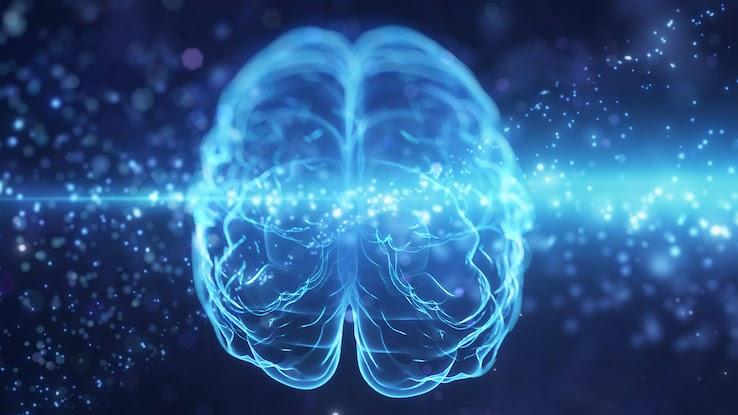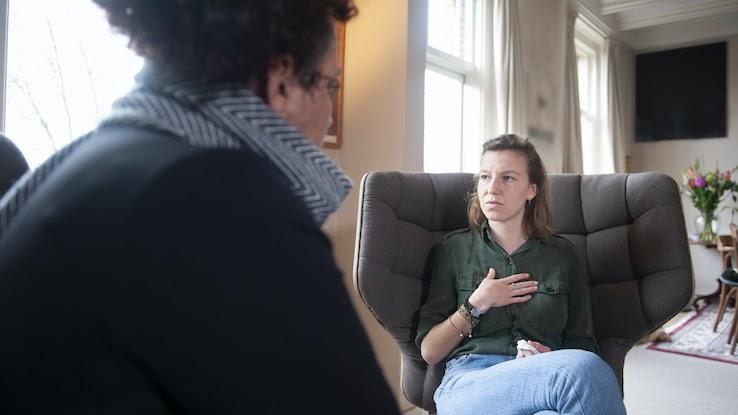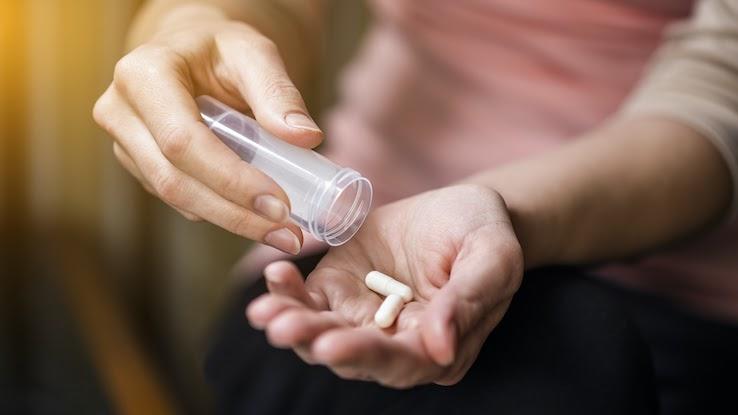Does Family Health Care Network Drug Test for Employment

Psychedelic therapy, likewise known as psychedelic-assisted psychotherapy (PAP), combines traditional talk therapy with a psychedelic substance, such as LSD, psilocybin, ayahuasca, or MDMA. All-encompassing research on the use of these conscious-altering drugs is currently underway and has shown promising results for treating a variety of serious medical atmospheric condition.
In fact, early enquiry has been and so encouraging that the U.S. Food & Drug Administration (FDA) called psychedelic therapy a "breakthrough therapy" in 2019, suggesting that it might not be long before this experimental practice becomes more commonplace. So far, researchers have determined that some psychedelics, such equally psilocybin, are safe to utilize equally a supervised, clinical handling and can produce substantial positive results when it comes to supporting a person's mental health.
Traditional psychiatric exercise typically involves psychotherapy, where mental health professionals talk with patients in social club to work through issues that are causing them emotional distress. Psychedelic therapy takes that a step farther — or, at to the lowest degree, supplements talk therapy. In this exercise, patients utilize psychedelic substances in combination with talk therapy to facilitate profound and lasting mental and behavioral alter.
Although using psychedelics may seem like a newer concept in Western medicine, Ethnic communities have used psychedelics in both religious and therapeutic practices for centuries. On the other hand, psychedelic therapy has only reached clinical settings in the West more recently. In the 1950s, scientists began experimenting with the use of the psychedelic substance LSD to treat certain mood disorders and addiction. Notwithstanding, legal restrictions put that research to a halt in the '60s, despite initial promising results.

In the '90s, roughly thirty years later that enquiry was halted, human psychedelic research resurfaced. The event? Researchers began using encephalon imaging technology in combination with clinical LSD and psilocybin trials, eager to see if the substances could provide handling for depression. Since and then, research into the potential of psychedelic therapy to treat serious medical conditions and mental illnesses has continued rather steadily.
So, in 2019, when the FDA called psilocybin-assisted mental healthcare a "quantum therapy," research into the potential of psychedelic substances began to speed upward. Now, more and more clinical trials are looking into the utilise of psychedelic therapy to care for a broad range of mental illnesses and disorders. Cheers to the promising psychopharmacological studies underway, certain psychedelics have become increasingly legal likewise.
How Does Psychedelic Therapy Piece of work?
The patient ingests a set corporeality of a predetermined psychedelic drug and then proceeds with a talk therapy session. Because psychedelics alter a person's consciousness, the therapist acts every bit a guide through the feel with the goal of interrogating specific mental health issues or obstacles.
Most normally, there are three phases of psychedelic therapy. The starting time is preparation, where a therapist trained in psychedelic treatment gets to know the patient during several (unaltered) talk therapy sessions. The idea is to explore the patient'southward private nature and develop a strong sense of trust.

The 2d phase is the first session itself. During a psychedelic therapy session, the patient consumes the psychedelic substance. There is a lot of emphasis on both mindset and setting, so that the experience tin be properly curated. Special attending must exist paid to the patient's mood and expectations — likewise equally how those things will interact with their personality and past experiences. By fostering trust, the therapist's aim as a guide is to provide an inviting, open up environment. In terms of setting, the physical environment is also of import. In clinical trials, the setting often looks like a comfortable space, such as a living room, to provide an area that feels condom and relaxing. Sometimes, a advisedly crafted playlist of music is played in the groundwork. During the session, the therapist takes a non-assertive approach — mostly listening and offering support, assistance, and guidance when appropriate. About sessions have roughly 8 hours from start to finish.
In the days following the session, patients will embark on the final stage, which is referred to every bit integration. This phase involves conversations between the therapist and the patient that allow the patient space to process the session. The function of the therapist is to provide insight into what tin be gleaned from the psychedelic experience. Overall, the intention of this type of therapy is to help the patient cope with their condition(due south) or, in some cases, work toward healing.
The Different Kinds of Psychedelic Therapy Substances
Several unlike psychedelic substances are involved in psychedelic therapy research. These include the post-obit:
- Psilocybin: Psilocybin is recreationally known equally magic mushrooms. Information technology is a hallucinogenic substance found in specific kinds of mushrooms. It alters one's consciousness, perception, and mood. Psilocybin studies are looking into its potential for treating anxiety, depression, post-traumatic stress disorder, and addiction.
- LSD: Lysergic acrid diethylamide (LSD) is a chemically-made hallucinogen that alters, consciousness, perception, and mood. Research shows that it may be useful for treating anxiety, mail service-traumatic stress disorder, and habit.

- Ayahuasca, Mescaline, Peyote, and DMT: These four hallucinogenic substances can all exist found naturally in different plant species. Their effects include altered perception, consciousness, and mood. Studies have shown their potential to treat depression, addiction, and anxiety.
- MDMA: Most commonly known equally ecstasy, MDMA is a chemically-made drug that can induce euphoric feelings, altered perception, lowered inhibitions, and increased sociability and arousal. It may take therapeutic potential for treating mail service-traumatic stress disorder.
How Can Psychedelics Help?
The potential applications of psychedelic therapy appear to be rather varied based on current research. Some of the nearly mutual conditions, illnesses and disorders that may exist treated with psychedelic therapy include the post-obit:
- Mail-traumatic stress disorder (PTSD): Research has shown that the psychedelic upshot of MDMA, psilocybin, and LSD may be useful in treating PTSD, specially in patients who have severe PTSD and show little comeback from other treatment options. Psychedelic therapy has provided promising results suggesting that PTSD patients have the potential to live comfortably with their PTSD.
- Anxiety, depression, and other mood disorders: A 2016 randomized, controlled, double-blind study found psilocybin to significantly reduce depression and anxiety in cancer patients. A 2021 written report summarizes the research and potential of psychedelic therapy in treating mood disorders, showing promising results all around.

- Habit: Substance abuse, including alcoholism, opiate addiction, and other forms of substance abuse accept been consistently on the rise in the past century. Show from current research shows that LSD, psilocybin, and other plant-based psychedelics may exist helpful in treating substance use disorders. For example, a 2017 written report institute that psychedelic therapy can lead to the long-term psychological changes needed to fully recover from habit and reduce the take chances of relapse.
- Full general well-existence: Enquiry shows that the use of psychedelic can also help one relax, make social connections, meliorate their introspectiveness, increase one's empathy, and, in full general, assist their overall well-beingness.
More clinical research consisting of much larger, controlled studies is necessary before whatsoever of these therapies are officially approved. In the meantime, psychedelic drugs will continue to be used for therapeutic research in clinical and non-clinical settings alike. So far, the results not just announced to exist effective but long-lasting as well.
Potential Risks Associated With Psychedelic Therapy
Psychedelic substances are powerful and listen-altering. For this reason, their use in clinical, therapeutic settings could evidence to provide meaning mental health benefits. In fact, psychedelic drugs have been found to exist extremely rubber in clinical, supervised settings. Current data suggests negligible dependence and toxicity risks.

Still, some psychological risks may limit who can safely appoint in this type of therapy. For example, the employ of psychedelic therapy is not considered condom for those with certain mood disorders, such every bit bipolar disorder. Furthermore, as psychedelic trips can cause anxiety, paranoia, and panic, this form of treatment may not be all-time for all personality types. Information technology is up to the discretion of the mental health professionals to determine this aslope the patient.
Self-handling, or the use of psychedelics in an unsupervised manner, can present psychological dangers to users. Without a properly curated environment and professional guide, psychedelic therapy may not take the desired results. Experiencing a "bad trip," from the use of psychedelics is not uncommon, which tin compound mental health bug rather than facilitate healing.
Resource Links:
- "Quantum Therapy" via U.S. Food & Drug Assistants (FDA)
- "Psychotherapies" via National Constitute of Mental Health (NIMH)
- "Ethical and legal issues in psychedelic damage reduction and integration therapy" via Harm Reduction Journal, BMC
- "The Therapeutic Potential of Psychedelic Drugs: Past, Present, and Future" via Neuropsychopharmacology, U.Due south. National Library of Medicine
- "Oregon becomes start state to legalize magic mushrooms as more states ease drug laws in 'psychedelic renaissance'" via CNBC
- "Taking Psychedelics Seriously" via Journal of Palliative Medicine, Mary Ann Liebert, Inc.
Source: https://www.symptomfind.com/health/are-psychedelic-drugs-the-future-of-therapeutic-care?utm_content=params%3Ao%3D740013%26ad%3DdirN%26qo%3DserpIndex
Postar um comentário for "Does Family Health Care Network Drug Test for Employment"